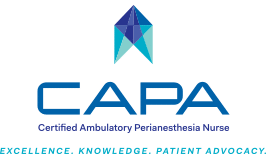News & Events
Question of the Week
A patient who has been taking digoxin preoperatively is having frequent premature ventricular contractions (PVCs). The perianesthesia nurse suspects:
- hypokalemia.
- hyperkalemia.
- hypernatremia.
- hyponatremia.


